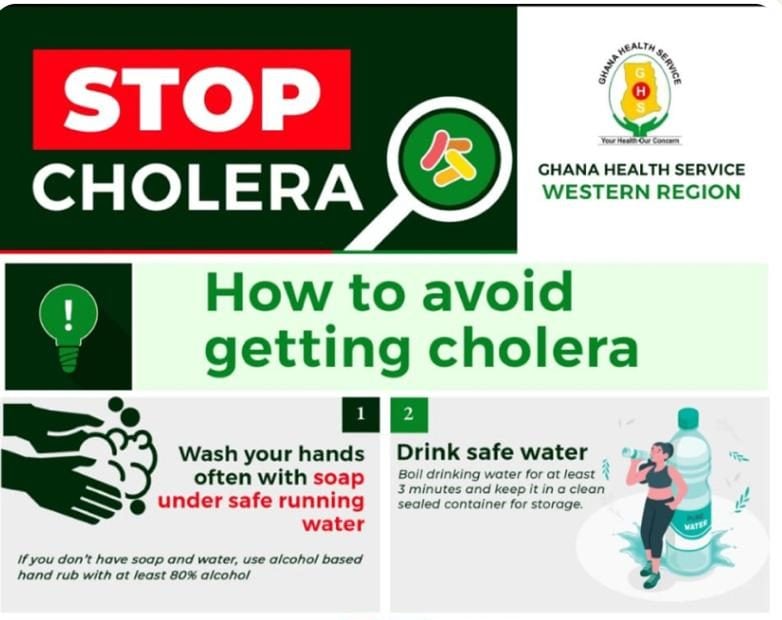The Western Regional Directorate of the Ghana Health Service (GHS) has recently reported a concerning public health issue with one confirmed case and three suspected cases of cholera in Takoradi, part of the Sekondi-Takoradi Metropolis. Dr. Nana Yaw Ofori Yeboah, the Western Regional Director of the GHS, confirmed the reports to the Ghana News Agency, providing essential details about the situation. Among the confirmed cases, a male patient has been identified, while the health officials are currently awaiting test results for the suspected cases. This situation demands attention as cholera can lead to significant health complications.
Despite the confirmed and suspected cases, Dr. Ofori Yeboah has urged the residents not to panic. He reassured the community by stating that health officials are collaborating with various stakeholders to manage and contain the cholera situation effectively within the metropolis. Timely communication from health authorities is crucial as it helps to mitigate fears and emphasizes that organized health responses are in place to address the outbreak. In public health crises, the reassurance of an effective response encourages community cooperation and adherence to health guidelines.
To minimize the risk of cholera transmission, Dr. Ofori Yeboah has set forth important preventive measures that residents are encouraged to adopt. He emphasized the significance of regular handwashing with soap and water, particularly after using the toilet and during food preparation. Such hygiene practices are essential to curtail the spread of cholera and other waterborne diseases, as they are often linked to unclean hands. Additionally, the emphasis on personal hygiene practices such as bathing regularly and washing clothes contributes not only to individual health but also to the broader community’s well-being.
In line with these hygiene practices, residents are also advised to maintain clean living conditions by disinfecting toilets and surfaces with soap and treated water. Such cleanliness initiatives are critical in environments that may be at risk of cholera outbreaks. When communities collectively engage in preventive measures, the likelihood of widespread transmission decreases significantly. Dr. Ofori Yeboah’s recommendations highlight the proactive steps individuals can take to safeguard their health and the health of their community.
Moreover, the importance of seeking medical attention promptly when experiencing symptoms related to cholera cannot be stressed enough. Common symptoms like vomiting and severe diarrhea warrant immediate medical intervention. Early detection and treatment are crucial in preventing complications and reducing mortality associated with cholera infections. The GHS’s emphasis on seeking timely healthcare serves as a reminder of the significance of health literacy in communities, empowering individuals to make informed decisions about their health.
In conclusion, the confirmation of cholera cases in Takoradi highlights the ongoing challenges health authorities face in managing infectious diseases. With Dr. Ofori Yeboah’s informed guidance and the effective collaboration of health officials and stakeholders, there is potential to contain the outbreak and prevent further cases. The recommendations provided underscore the critical role of hygiene and medical awareness in combating cholera. Therefore, it is essential for the residents of Takoradi and similar regions to remain vigilant, adhere to health guidelines, and foster a united front against cholera and other potential health threats.


